Artist Profile: Nnenna Okore
Nnenna Okore (*1975 Canberra, AUS) was born in Australia, raised in Nigeria, and works in the United States. She is a Professor of Art at Chicago’s North Park University. During her undergraduate studies at the University of Nigeria, she studied and mentored under El Anatsui, who had a retrospective solo exhibition at the Haus der Kunst in 2019. Okore’s work focuses on ecological issues steeped in artistic practice, pedagogy, and social engagements throughout her long career as an artist-researcher-teacher. As a Chicago art practitioner, Okore has participated in numerous participatory art projects and exhibitions designed to produce dialogue, artmaking, and an awareness of current environmental issues. In her creative processes, she uses environmentally friendly materials, such as natural dyes, fibers, fabrics, and bioplastics. Okore is passionate about dialogue on ecological issues and is currently involved in collaborative environmental projects across Nigeria, Australia, and the United States.
Nnenna Okore, whose work continues to shape global conversations in contemporary art, recently completed a major site-specific installation, Between Earth and Sky, at the Royal Botanic Gardens, Kew, London. Her monumental glass work, Together We Belong, Here (304x853 cm, hand painted glass) —produced by Mayer’sche Hofkunstanstalt, Munich—was recently commissioned and unveiled by the Illinois Environmental Protection Agency, USA. An additional large-scale glass installation (hand painted glass) in Baltimore, USA, will be unveiled later this year.
Okore is a recipient of the 2012 Fulbright Scholar Award and Creative Victoria Award from Australia. Her works have been featured in major exhibitions at the Museum of Art and Design, NY; Museum of Contemporary African Diasporic Art, New York; Spelman Museum of Fine Art, Atlanta; Museu Afro Brasil, Sao Paulo, Brazil; Memphis Brooks Museum of Art, and the Cleveland Museum of Art, Bruges Triennial, the Chengdu International Biennial, the Public Art Abu Dhabi (PAAD) Biennial, among others.
Nnenna Okore’s artistic work focuses on complexes of ecological themes, including carbon emissions, energy consumption, and civilization’s destructive overuse of natural resources. Her work is grounded in the notion, shared by many African people, that all forms of life – including humans, animals, plants, the earth, as well as intangible modes of being – possess an energetic force that permeates all of our lives. Okore is involved in numerous environmental art projects and exhibitions that pursue investigations, dialogue, and transformations of our current ecological challenges.
Her sculptures, objects, installations, and public artworks are created from biodegradable materials, acting to raise awareness of the feasibility of sustainable practices within the art world. Frayed layers of jute fabric point to the importance of woven materials in the context of her Nigerian cultural heritage. More broadly, the materials in her works can be understood metaphorically, revealing the ways in which the construction of memory and history itself is layered, frayed, constantly rewoven, and, yet, simultaneously ephemeral.
“My aesthetics and visual forms critically question the destruction of the natural world by humans. In my sculptures and installations, I work to transform materials with intricate surfaces into tactile objects inspired by the energies of nature. My materials are animal skins, barks, dried leaves, vines, rocks, and many other organic and fibrous materials that I find in my living environment, such as fabrics, paper, clay, hessian fabrics such as burlap and jute, but also sticks, yarn, ropes, and bioplastics. My creative approaches are labor-intensive, sometimes involving time-consuming and repeated processes of tattering, sewing, dyeing, starching, tying, and stiffening with food or paint-based mediums.
I have been exploring the intersections between spiritual, corporeal, ecological, and social relationships. I’m interested in how everything is connected through bodies, cycles, networks, strands, and fibers.” [N.O., lecture as part of the discussion event on her work at the Stanley Museum of Art, Iowa City, Iowa, July 2023]
Growing up in Nigeria, Okore engaged in an everyday practice of reusing things. Whether it was newsprint, fabrics, cans, or anything else, this was a kind of permanent act of recycling within her own environment. The material jute, for example, which plays a central role in her works, was omnipresent during her childhood. In the household of her Nigerian parents, jute sacks were used to hold grains and for many other uses often until they were completely torn and tattered and were only fit to be repurposed into sponges. Beyond these uses in the home, jute was a material essential to the local culture that was found everywhere in everyday African life, from the clothing people wore to the mats found on the floor. Based in this experience of the artist, jute has remained for her a material that renders tangibly tactile the transience, fleetingness, and fragility of our lives. It is a material that can tell stories.
When Okore came to study in Iowa City, she was initially shocked by her confrontation with the waste problem this city had, as so many Western cities in general do, as well as by the overwhelming prevalence of ubiquitous consumption.
“In a broader perspective, my work has also developed out of critical questions about how the history of colonization has not only robbed the people of the African continent of their homeland, but has robbed them more profoundly of their natural ties to the energies and cyclical processes of nature. In pre-colonial times, art was an experience, not just an aesthetic experience, art was worn, it was part of an attitude and an internalized view that art first enriches your day. People had artifacts and figures that were part of their lives and recognized them as representing different forms of wholeness and power.” (N.O.)
Further important aspects of Okore’s work, essentially linked to impressions from her childhood, are the lengthy process of refashioning the raw materials into new relationships, as well as the time-consuming process of creating the sculptures and spatial installations themselves. As a child growing up in Nigeria in the 1980s, Okore faced the daily necessity of finding and building everything from scratch. This meant that such tasks, once begun, could only be completed in tiny steps, over the course of hours upon hours.
As a child, the artist recalls, she experienced all this as a kind of torture: the daily shelling of grain seeds, picking grains from their stalks, and other tiresome tasks. Today, she regards such time-consuming, manual work as a form of contemplation; it is time spent that feeds into the complexity of her works, into their layering of meanings.
Her heritage also manifests in the terms, words, and phrases she uses from the Igbo language she grew up with, which appear in the titles of her works. Her father was a person very connected to the philosophy and spirituality of the Igbo traditions; they were lived, authentic aspects of the language he used and his manner of speaking. For people who understand this language, these Igbo terms and names reveal a great wealth of associations; they can be linked to the cyclical forces and energies of nature, the cosmos, and the spirit. According to Okore, none of this is translatable.
The motif of the cyclical that runs through my work is closely linked to the experience of individual physicality—and here, of course, also to my body awareness as a woman, as a mother. I was in my early 40s when the youngest of my children was born and this was also a time when I was confronted with the fact that my body was changing and that I was experiencing my mother getting older and older. (N.O.)
Okore’s childhood in the cultural region of Igboland – home to an ethnic group of around 30 million people—in turn stands in the larger context of her youth in Nigeria and, from an even wider perspective, can be further linked to her experiences growing up in Africa. There are associations that, according to the artist, encompass all of this: African culture and indigenous African practices in general. Nigeria is a multi-ethnic country, and so Okore distinguishes the Igbo philosophy she grew up with from the many philosophical traditions and divergent ways of thinking that exist in Nigeria.
“In terms of nationality, I speak of myself as Nigerian, but in my thinking, in my philosophy, in my artistic and material practice, I am connected to Igbo traditions. It is ethnicity that nourishes and frames my thinking, my worldview and my perspectives.” (N.O.)
On the Works by Nenna Okore in the Exhibition
Okore interprets her wall-mounted floral works as metaphors for
“the planetary journey, the passing of time and the fleeting nature of the planet. I employ different materials and weaving processes to explore material compatibility and expand the material meaning. The floral pieces elicit more intimate connections with nature. Also, these smaller pieces are inspired by ecological and environmental philosophies. The African Igbo philosophy, which I grew up with, is rooted in phasal, cyclic thinking: thinking about life in terms of birth, youth, adulthood, death, and reincarnation, and back again. I go one step further in my work when I speak of the metaphor of the floral, of flowers – they too embody moments of the cyclical, with initial growth, blossoming and withering. So, flowers are very strong metaphors for how we connect and how we relate to these environmental ecological issues.”
Nnenna Okore on her Artistic Philosophy
“I position myself as an artist, a teacher, and an eco-art researcher who is interested in creating awareness through social material consciousness.
In my art I typically would draw on Afrocentric notions with the idea of thinking about how all things – living, non-living and spiritual—are connected and how they intersect to change things or to create experience.
I see the art that I create as having agency and that all the materials I use are interconnected, and they also relate with other forces unknown to us, spiritual forces. Everything has a live force to it.
I believe that art is a material force, that art is a powerful agent for speaking about the things that affect human perspectives.
By experiencing art, we’re also able to experience life and the different forces that make up our cosmic experience. Being part of this complex web of the planetary experience and interconnectedness, people can become more embodied with their surroundings. It’s from the premise of my African belief that all things are connected that my work emerges.
So when I work with materials using different kinds of fiber, fabrics, jute, stones, sticks, paper, I’m alive to the idea that these mediums are vessels that help me to call attention to different social and ecological matters.
To my mind, these materials are co-collaborators. They are co-actants in the process that I use for creating my art and for engendering awareness about climate change and planetary problems that serve as a tool for enlivening social interactions and experiences.
While I’m the brain behind the art that I create, I recognize and give credit to the agencies that these materials embody and also how they invite people to engage with them through conversations in ways that I cannot.
The materials create a unique kind of experience. The diverse nature of materials, plus the process and the techniques of fraying the fabric, teasing the fabric, shredding, sewing, and dyeing, all enable me to connect with my materials and interweave not just the objects, the people and spaces, but also layers of history and stories and narratives that are embodied within my process and materials.
I often draw inspiration from my Igbo cultural heritage as a way of underpinning indigenous and independent ways of thinking and looking at the interdependent and reciprocal nature of human to earth relationships.
I’m thinking of African philosophies that support the notion that cosmic harmony between humans and things are important for a balanced ecological world.
Humans hold the destiny of the planet in their hands.”
[N.O., lecture as part of the discussion event on her work at the Stanley Museum of Art, Iowa City, Iowa, July 2023]
Education
2023
Doctor of Philosophy (Fine Art), Monash University, Melbourne, Australia
2005
Master of Fine Arts (Sculpture), University of Iowa, Iowa City/IA, USA
2004
Master of Arts, University of Iowa, Iowa City/IA, USA
1999
Bachelor of Fine Arts, University of Nigeria, Nsukka, Nigeria
Solo Exhibitions
2024
Chasing Butterflies in Harmattan, Sakhile&Me, Frankfurt, Germany
2023
Spirit Dance, Stanley Museum of Art (University of Iowa), Iowa City/IA, USA
2022
In/Flux, MADA Gallery (Monash University), Melbourne, Australia
Macroscopic Organisms, Also Known As Africa, Paris, France
Making Kin, Carlson Tower Gallery, Chicago/IL, USA
2021
Bioplastic: Thing Power, B27 Gallery (Monash University), Melbourne, Australia
2019
Plasmorganisms, Chicago Public Library (Albany Park Branch), Chicago/IL, USA
2018
Embodiment, Sakhile&Me, Frankfurt, Germany
2017
Ukwa Ruo Oge Ya O daa, October Gallery, London, UK
Ututu, Mattatuck Museum of Art, Watebury/CT, USA
Anima, Legion Art CSPS Galleries, Cedar Rapids/IA, USA
Osimili, Jenkins Johnson Gallery, San Francisco/CA, USA
2016
Sheer Audacity, Memphis Brook Museum of Art, Memphis/TN, USA
When All Is Said and Done, Monique Moloche Gallery, Chicago/IL, USA
2015
Owu, Arrowhead Gallery, Waubonsee College, Sugar Grove/IL, USA
Nkata, Krannert Museum of Art (University of Urbana-Champaign), Urbana/IL, USA
On the Brink, Elmhurst Art Museum, Elmhurst/IL, USA
2014
Twist and Turns, David Krut Gallery, New York/NY, USA
Fiber of Being, Welch School Galleries (Georgia State University), Atlanta/GA, USA
Unfound, Beard Art Center Gallery (Indiana Wesleyan University), Marion/IN, USA
Will You Walk With Me to the End of the Earth?, Carlson Tower Gallery (North Park University), Chicago/IL, USA
2013
Akaraka: What Will Be, Art Twenty One, Lagos, Nigeria
Flow, Wheatbaker Hotel Gallery, Lagos, Nigeria
2012
Transfiguration, Contemporary African Art Gallery, New York/NY, USA
2011
New Works, Herron School of Art and Design Gallery (Indiana University), Indianapolis/IN, USA
Shokoloko, Craft Alliance, St. Louis/MO, USA
Rush, Skidmore College Gallery, Saratoga Springs/NY, USA
Metamorphoses, October Gallery, London, UK
Torn Apart, David Krut Projects, New York/NY, USA
On The Edge, Dittmar Memorial Gallery (Northwestern University), Evanston/IL, USA
2010
Life After, Noyes Art Center, Evanston/IL, USA
Textile, Blachère Foundation Art Center, Apt, France
Recovered Energies, Bekris Gallery, San Francisco/CA, USA
Absurd Beauty, Northeastern Illinois University Gallery, Chicago/IL, USA
2009
Strings and Patterns, Viterbo University Gallery, La Crosse/WI, USA
Anyanwu, Carl A. Fields Center Gallery (Princeton University), Princeton/NJ, USA
Twisted Ambience, Chicago Cultural Center, Chicago/IL, USA
Common Thread, Bekris Gallery, San Francisco/CA, USA
Of Earth...Bark and Topography, Goethe Institut, Lagos, Nigeria
2008
Ulukububa, October Gallery, London, UK
Moonlight Tales, Tall Grass Gallery, Park Forest/IL, USA
Affrika West, Oriel Mostyn Gallery, Llandudno, UK
2007
Reflection, Contemporary African Art Gallery, New York/NY, USA
Sub-consciousness, Adam Hall Gallery (Wheaton College), Wheaton/IL, USA
2006
Trans-figuration, Robert F. DeCaprio Art Gallery (Moraine Valley Community College), Palos Hills/IL, USA
Betwixt and Between, Carlson Gallery (North Park University), Chicago/IL, USA
2005
Paper to Paper, Armature Gallery, University of Iowa, Iowa City/IA, USA
2004
Accumulations, Arts Iowa City, Iowa City/IA, USA
2003
Re-presented, Armature Gallery (University of Iowa), Iowa City/IA, USA
2002
Beyond the Lines, Didi Museum, Lagos, Nigeria
2001
Metaphors, Alternative Space, Lagos, Nigeria
Group Exhibitions
2024
voices from abroad, Behncke Gallery, Munich, Germany
Neo-Custodians: Woven Narratives of Heritage, Cultural Memory, and Belonging, Bemis Center for Contemporary Arts, Omaha/NE, USA
To Weave the Sky: Textile Abstractions, from the Jorge M. Pérez Collection, El Espacio 23, Miami/FL, USA
2023
Unbridled Encounters, Walford Galleries (Wheaton College), Wheaton/IL, USA
Intimations, Sakhile&Me, Frankfurt, Germany
Tapestry of Voices: The Poetic Dialogue Project, Christopher Art Gallery (Prairie State College), Chicago Heights/IL, USA; Downing Museum, Bowling Green/KY, USA
Earthly Visions: Inside the Climate Crisis, Gallery 400 (The University of Illinois), Chicago/IL, USA
Narrative Threads: Fiber Art Today, Moody Center for the Arts (Rice University), Houston/TX, USA; Cambridge Art Gallery, Ontario, Canada
Fragments & Fabrications, Bradbury Art Museum (Arkansas State University), Jonesboro/AR, USA
To Build What We Become When We Dream, Queens Square Gallery (Cambridge Art Galleries), Ontario, Canada
2022
HerStory: Shaping History, Rele Gallery, Los Angeles/CA, USA
Poetics of Material, Rele Gallery, Los Angeles/CA; Rele Gallery, Lagos, USA
2021
Trauma, Triennale Brugge, Brugge, Belgium
Ecological Co-Development, Chengdu Biennale, Chengdu, China
Columned Hall Exhibition, Stoa169, Polling, Germany
The Invincible Hands, Yemi Shyllon Museum of Art, Lagos, Nigeria
Natural Materials, Jenkins Johnson Gallery, San Francisco/CA, USA
Podium II, Jenkins Johnson Gallery, San Francisco/CA, USA
2020
Second Careers: Tributaries in African Art, Cleveland Museum of Art, Cleveland/OH, USA
31:women, Daimler Art Collection, Berlin, Germany
Prête-Moi Ton Rêve, Musée des Civilizations Noires, Dakar, Senegal
2019
Art + Identity, Browngrotta Art Gallery, Wilton/CT, USA
Fuel for Thought, Art Exchange Gallery, Essex, UK
Transformed: Paper in Dimension, Hunterdon Art Museum, Clinton/NJ, USA
Water, Wisconsin Museum of Quilts & Fiber Arts, Cedarburg/WI, USA
2018
Abstract Minded: Works by Six Contemporary African Artists, August Wilson Center for African American Culture, Pittsburgh/PA, USA; Samuel Dorsky Museum, New Paltz/NY, USA; N‘Namdi Center for Contemporary Art, Detroit/MI, USA
2017
The Enlighteners, Palais des Papes, Avignon, France; Musée du Petit Palais, Avignon, France; Musée Calvet, Avignon, France; Musée Lapidaire Avignon, France
Beyond the Surface, Fashion Outlet, Chicago/IL, USA
When the Heavens Meet The Earth, The Heong Gallery, Downing College, Cambridge, UK
Weather or Not, That is the Question, Children‘s Museum of the Arts, New York/NY, USA
2016
La mer/La mère, St Mary‘s College, South Bend/IN, USA
Standing Out, Temple Muse, Lagos, Nigeria
Summertime Group Exhibition, Jenkins Johnson Gallery, San Francisco/CA, USA
Finding Shelter: An Exhibition of Contemporary Fiber Art, Baum Gallery (University of Central Arkansas), Conway/AR, USA
2015
Exceptional: Handmade Paper Beyond Substrate, Minnesota Center for Book Art, Minneapolis/MN, USA
The Contemporaries, Wheatbaker Hotel, Ikoyi, Nigeria
Works from Around our State, Evanston Art Center, Evanston/IL, USA
Africa Africans, Museu Afro Brasil, Sao Paulo, Brazil
2014
Interwoven Histories, October Gallery, London, UK
Brides of Anansi: Fiber and Contemporary Art, Spelman Museum of Fine Art, Atlanta/GA, USA
African Origins, Morton Fine Art, Washington DC, USA
2013
Six Draughtsmen, Museum of Contemporary African Diasporic Art, New York/NY, USA
International Biennial of Lin de Portneuf, Quebec, Canada
No One Belongs Here More Than You, Center for Contemporary Art, Lagos, Nigeria
2012
Textura, Bekris Gallery, San Francisco/CA, USA
Inside-out/Outside-in, Visual Art Center Gallery (Mississippi State University), Mississippi State/MS, USA
We Face Forward, Manchester Art Gallery, Manchester, UK
(Re-)Cycles of Paradise, LACE Los Angeles Contemporary Exhibitions, Los Angeles/CA, USA
2011
Transcending Integration, Baltimore Clayworks, Baltimore/MD, USA
Environment and Object in Recent African Art, Anderson Gallery (Virginia Commonwealth University), Richmond/VA, USA; Tang Museum, Skidmore College, Saratoga Springs/NY, USA
2010
As It Is: Contemporary Art from Africa and the Diasporas, Mojo Gallery, Dubai, UAE
Scratch, Latit Kala Akademi (Sakshi Gallery), New Delhi, India
(Re-)Cycles of Paradise, UN COP16, Cancun, Mexico
29th Sao Paulo Biennial, Sao Paulo, Brazil
Textile, Blachère Foundation Art Center, Apt, France
2009
(Re-)Cycles of Paradise, UN COP15, Copenhagen, Denmark
Common Ground, Bekris Gallery, San Francisco/CA, USA
In Progress, Carlson Tower Gallery (North Park University), Chicago/IL, USA
Trash Menagerie, Peabody Essex Museum, Salem/NY, USA
Paper to Pulp, Howard County Center for the Arts, Ellicott City/MD, USA
Transvangarde, October Gallery, London, UK
Chance Encounters, Sakshi Gallery, Mumbai, India
Objects of A Revolution, Galerie Dominique Fait, Paris
Trace/Memory, Evanston Art Center, Evanston/IL, USA
2008
Angaza Africa, October Gallery, London, UK
Affrika West, Galeri Artspace, Caernarfon, UK
Art Exhibition, Art4 Gallery, Channel4, London, UK
Second Lives: Remixing the Ordinary, Museum of Arts and Design, New York/NY, USA
Refabrication, Carlson Gallery, North Park University, Chicago/IL, USA
Clay and Fiber, Woman Made Gallery, Chicago/IL, USA
Trading Spaces, Binghamton University, Binghamton/NY, USA
Moonlight Tales, Tall Grass Arts Association, Park Forest/IL, USA
2007
African Contemporary Art Exhibition, Dakar Biennale, Dakar, Senegal
2005
Twelfth SOFA International Exposition, Chicago/IL, USA
8th International Open Exhibition, Woman Made Gallery, Chicago/IL, USA
2003
Migrations, Legion Arts CSPS, Cedar Rapids/IA, USA
Units, Legion Arts CSPS, Cedar Rapids/IA, USA
2002
New Works, Armature Gallery, University of Iowa, Iowa City/IA, USA
2001
New Energies, Nimbus Gallery and Mydrim Gallery, Lagos, Nigeria
Teaching Experience
2021-2022
Assistant Chief Examiner, Monash University, Melbourne, Australia
2019-2021
Associate Lecturer, Monash University, Melbourne, Australia
since 2015
Professor, North Park University, Chicago/IL, USA
2011-2015
Associate Professor, North Park University, Chicago/IL, USA
2005-2011
Assistant Professor, North Park University, Chicago/IL, USA
Residencies & Awards
2023
Threewalls Community Art Grant, Chicago, USA
2021
Creative Victoria Art Grant, Melbourne, Australia
2020
Monash M Pavilion Art Grant, Melbourne, Australia
2018
Individual Professional Development Grant, North Park University, Chicago, USA
2017
Research and Development Lab Award, Threewalls, Chicago, USA
2012
Fulbright Scholar Award
2011
Artist-in-residence, Skidmore College, New York, USA
2010
Artist Residency, Jean Paul Blachére Foundation, Apt, France
Artist-in-residence, Peabody Essex Museum, Salem, USA
2007
Artist Full Fellowship at Global Art Village, Delhi, India
Residency Skowhegan School of Painting and Sculpture, Skowhegan, USA
2006
Art Omi International Residency, New York, USA
UNESCO-Aschberg Fellowship for Artists (Gruber Jez Foundation), Mexico
2004
SFAI Residency, Santa Fe Art Institute, Santa Fe, USA
Collections
Stanley Museum of Art (University of Iowa), Iowa City/IA, USA; Krannert Museum of Art (University of Urbana Champaign), Urbana/IL, USA; Kruizenga Art Museum (Hope College), Holland/MI, USA; Jorge M. Pérez Collection, Miami/FL, USA; North Park University, Chicago/IL, USA; World Bank, Washington DC, USA; Brooklyn Academy of Music, Brooklyn/NY, USA; Newark Museum, Newark/NJ, USA; Indianapolis Art Center, Indianapolis/IN, USA; Jean Paul Blachère Foundation, Apt, France; Mercedes Benz Art Collection, Stuttgart, Germany; United States Embassy, Abuja, Nigeria; Royal Collections, Abu Dhabi, UAE; Sina Jina Collection, London, UK
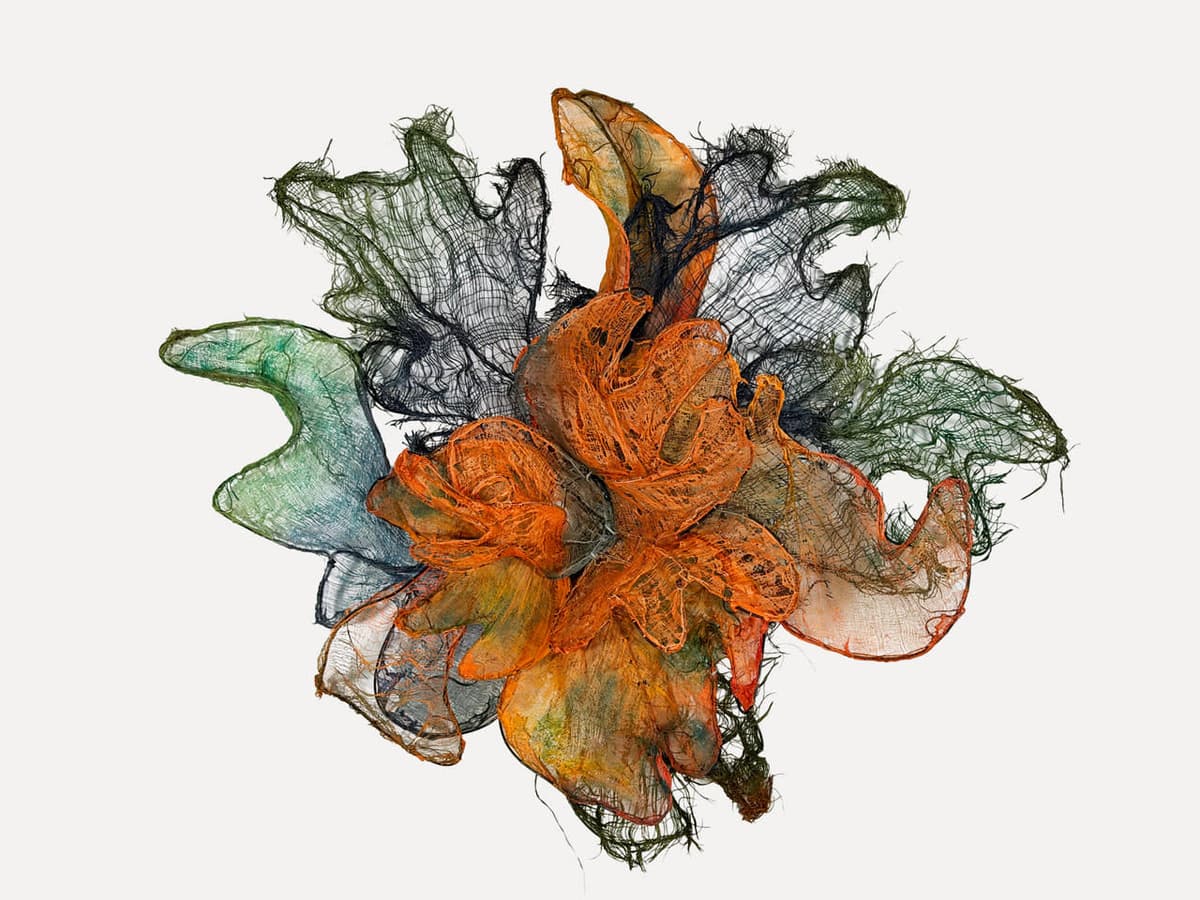
A Tale from Within, 2026
Cheesecloth, wire, and dye
101,6 x 114,3 x 25,4 cmEnquiry
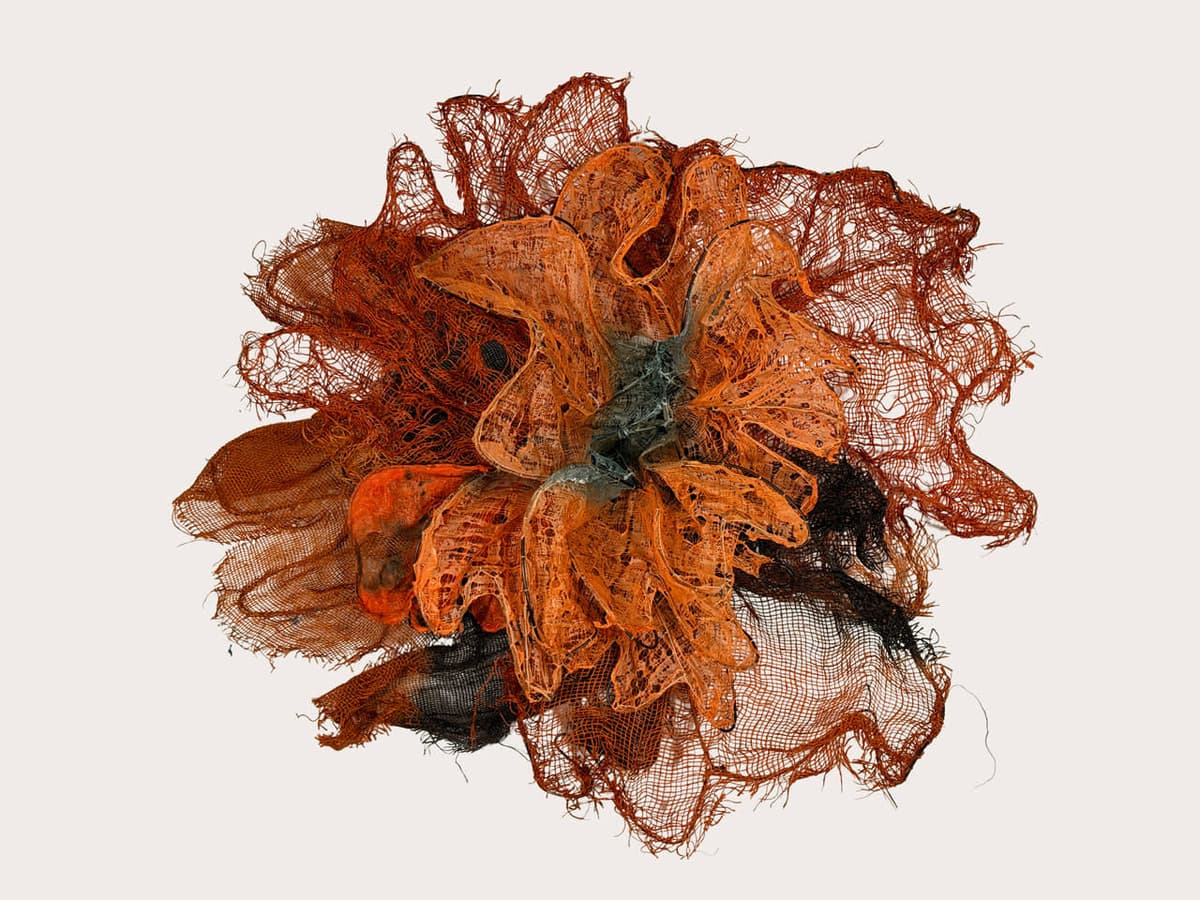
Breaking Apart, 2026
Cheesecloth, burlap, wire, and dye
88,9 x 101,6 x 25,4 cmEnquiry
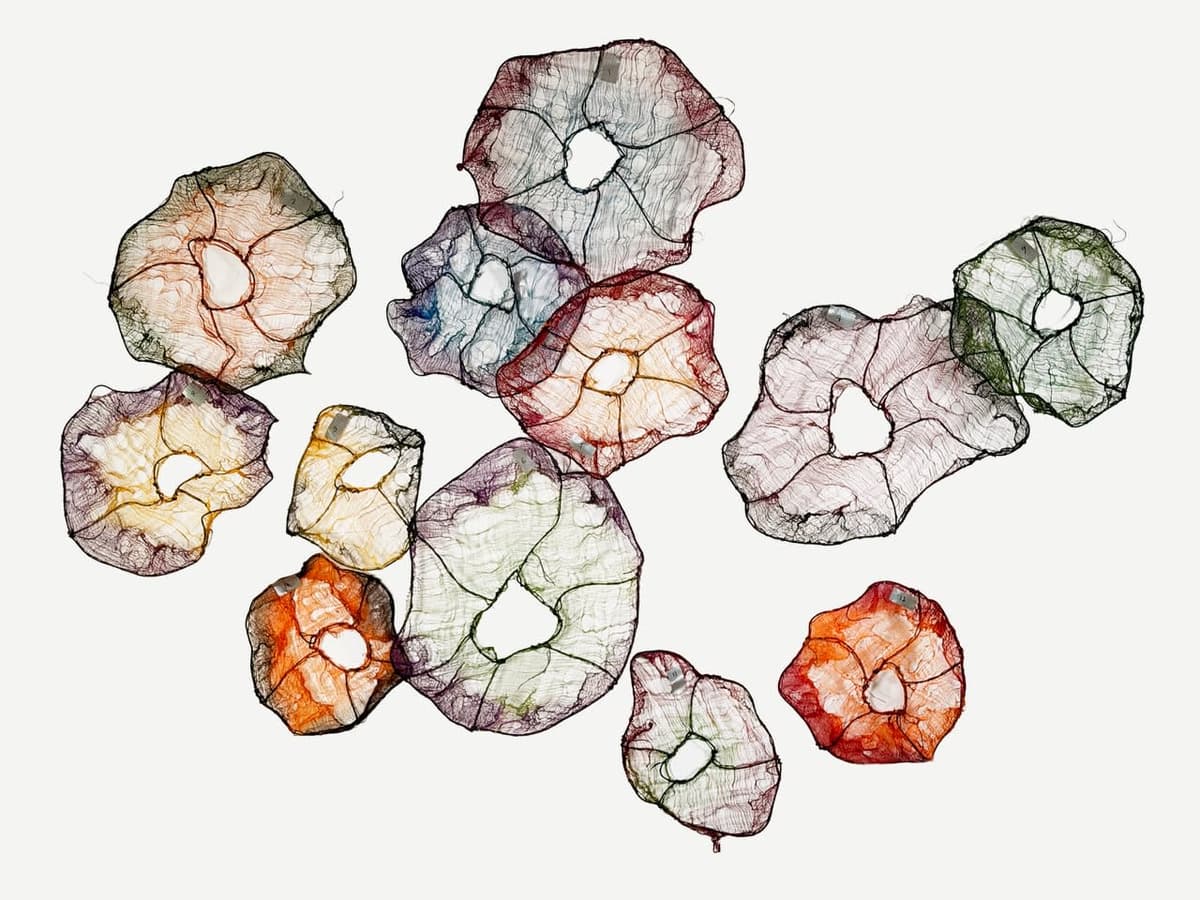
Here and Now , 2026
cheesecloth, dye, and wire
182,88 x 152,4 cm Enquiry
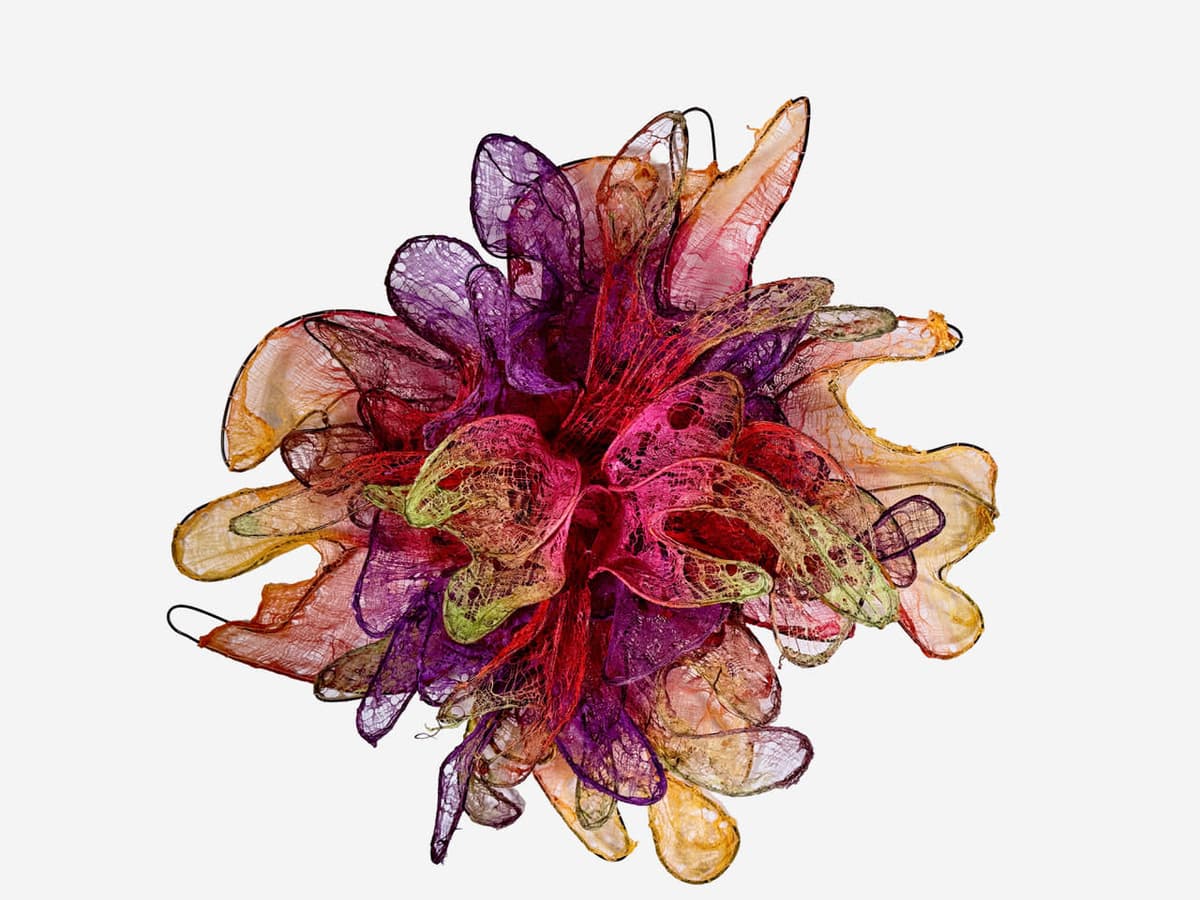
Light of Our Time I, 2026
Cheesecloth, wire, and dye
76,2 x 76,2 x 25,4 cmEnquiry
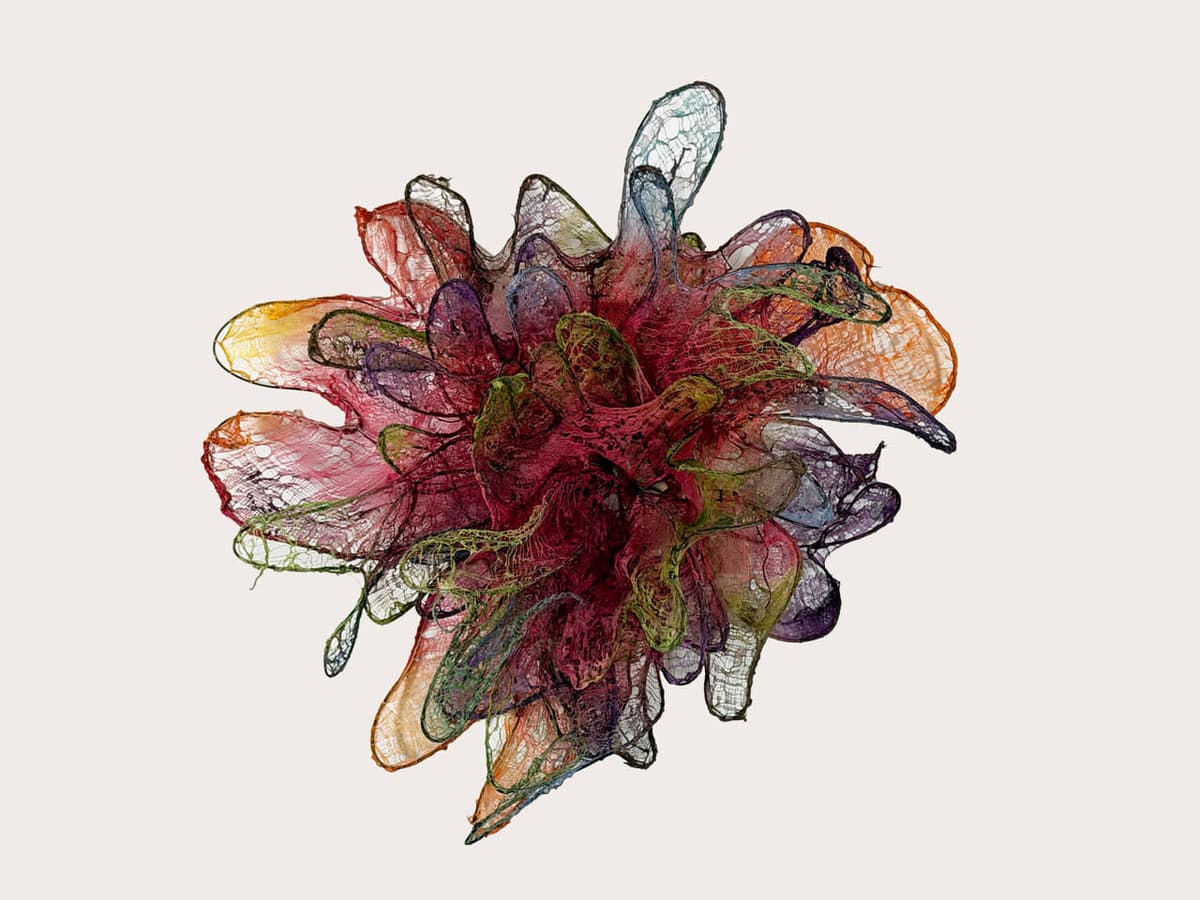
Light of Our Time III, 2026
Cheesecloth, wire, and dye
76,2 x 76,2 x 25,4 cmEnquiry
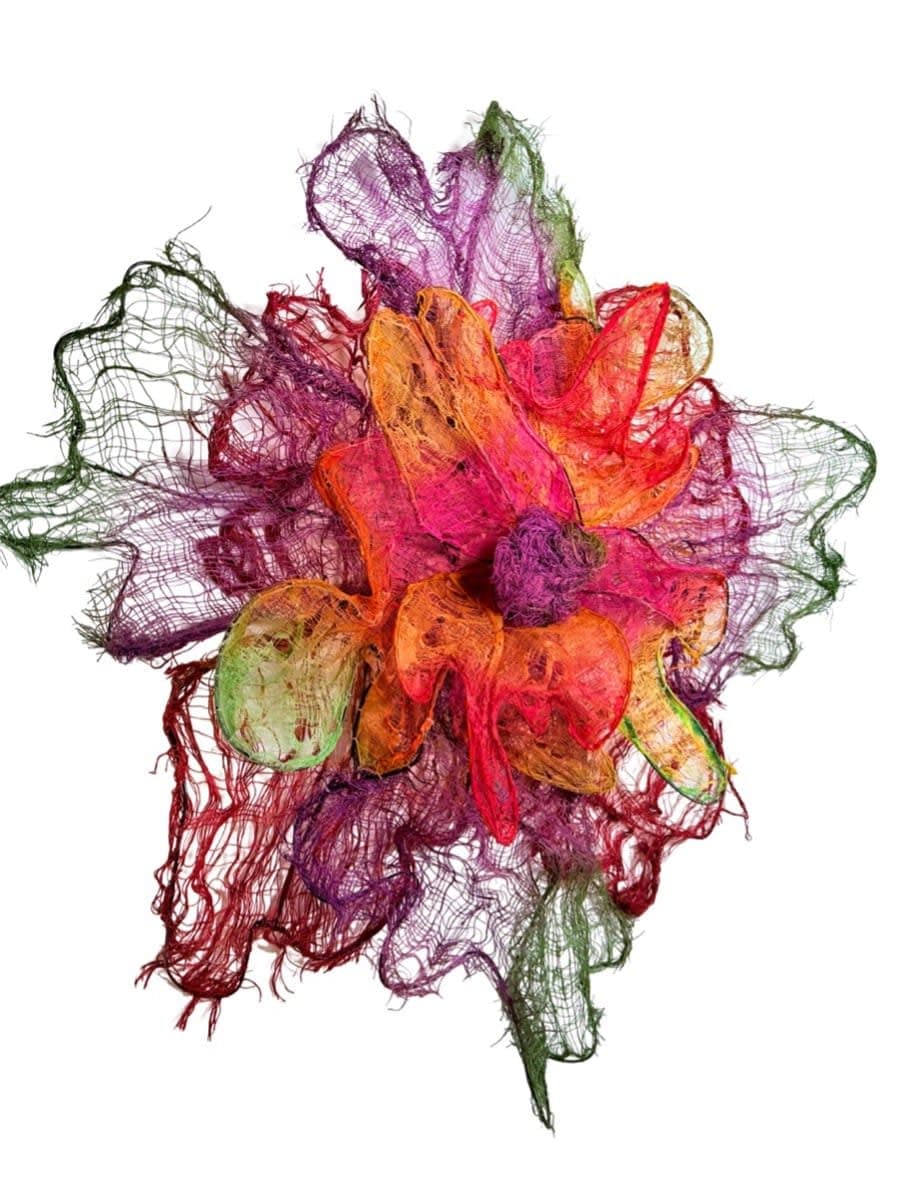
Only Time Will Tell , 2026
Cheesecloth, burlap, wire, and dye
114,3 x 114,3 x 25,4 cmEnquiry
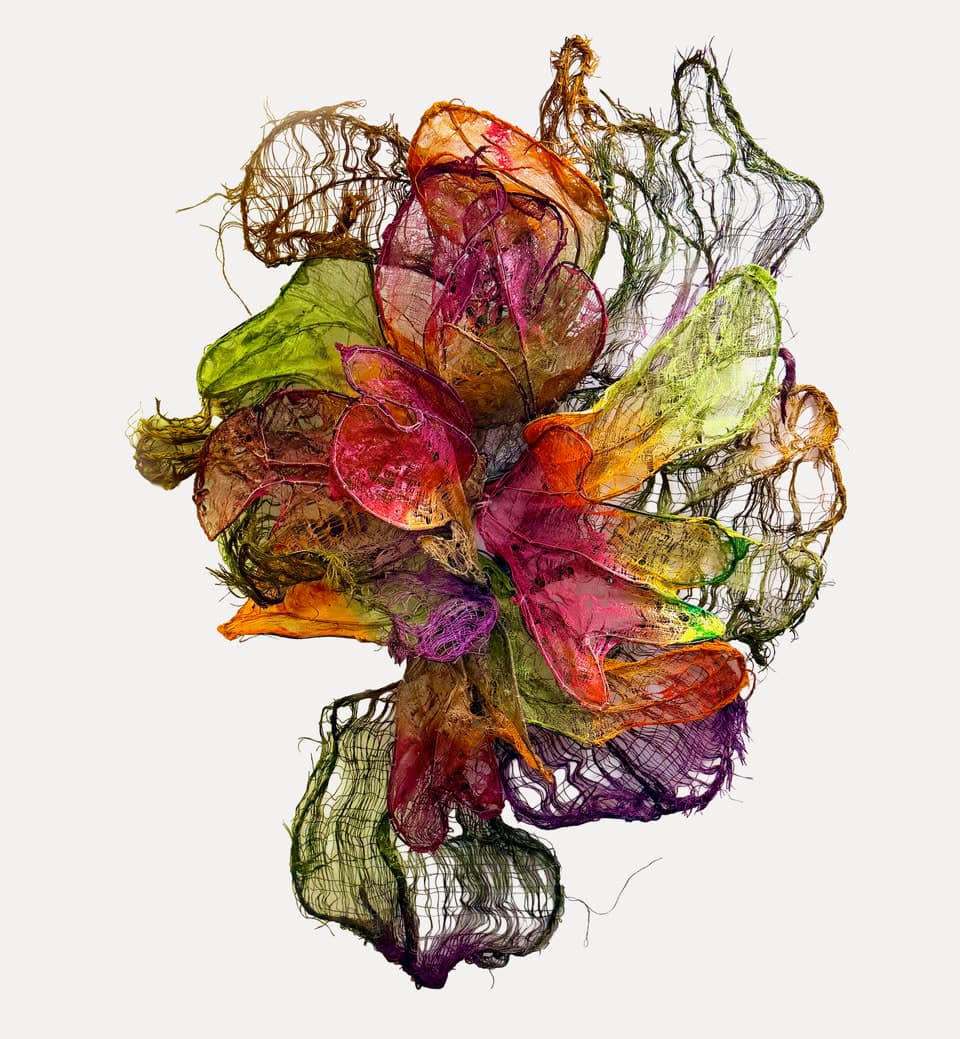
The Way Things Are, 2026
Cheesecloth, burlap, wire, and dye
127 x 114,3 x 25,4 cm Enquiry
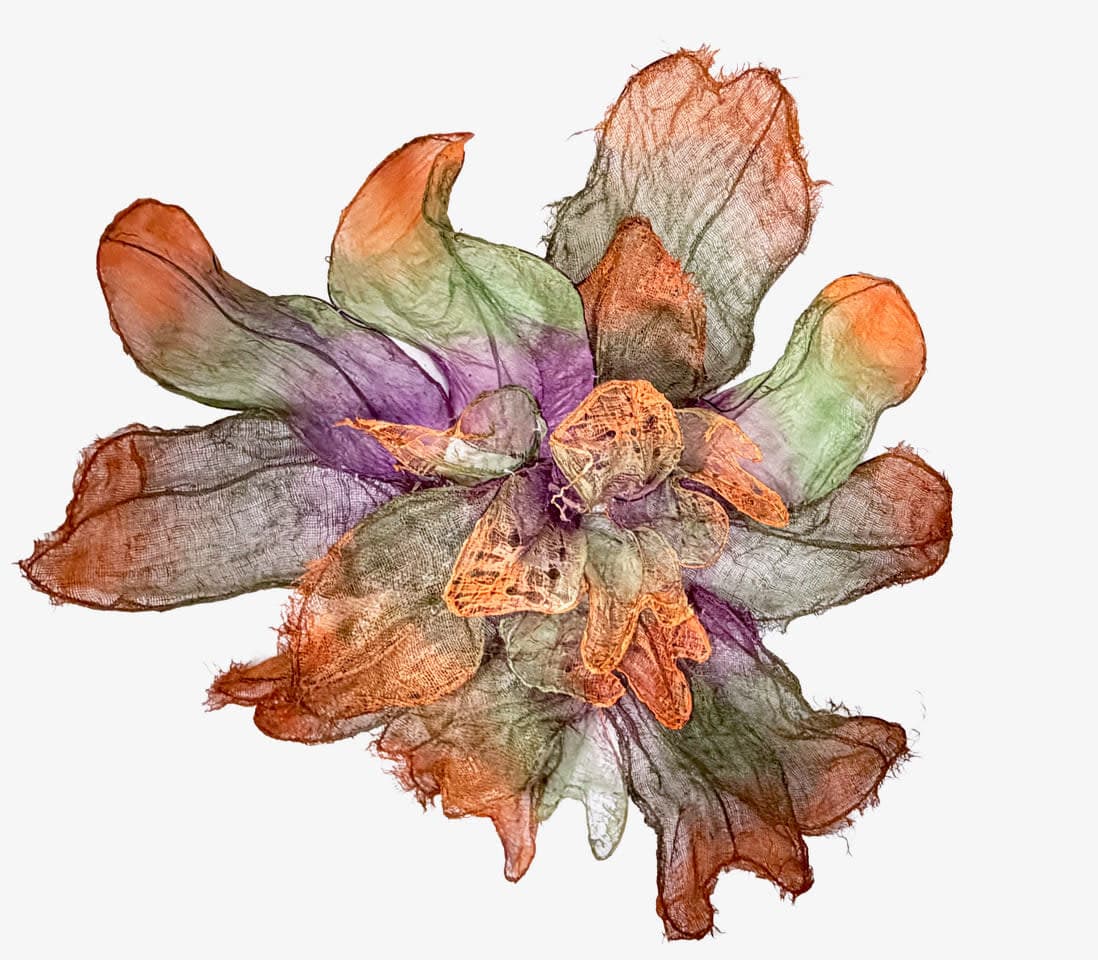
Uncontrollable Nature, 2026
Cheesecloth, wire, and dye
152,4 x 165,1 x 25,4 cmEnquiry
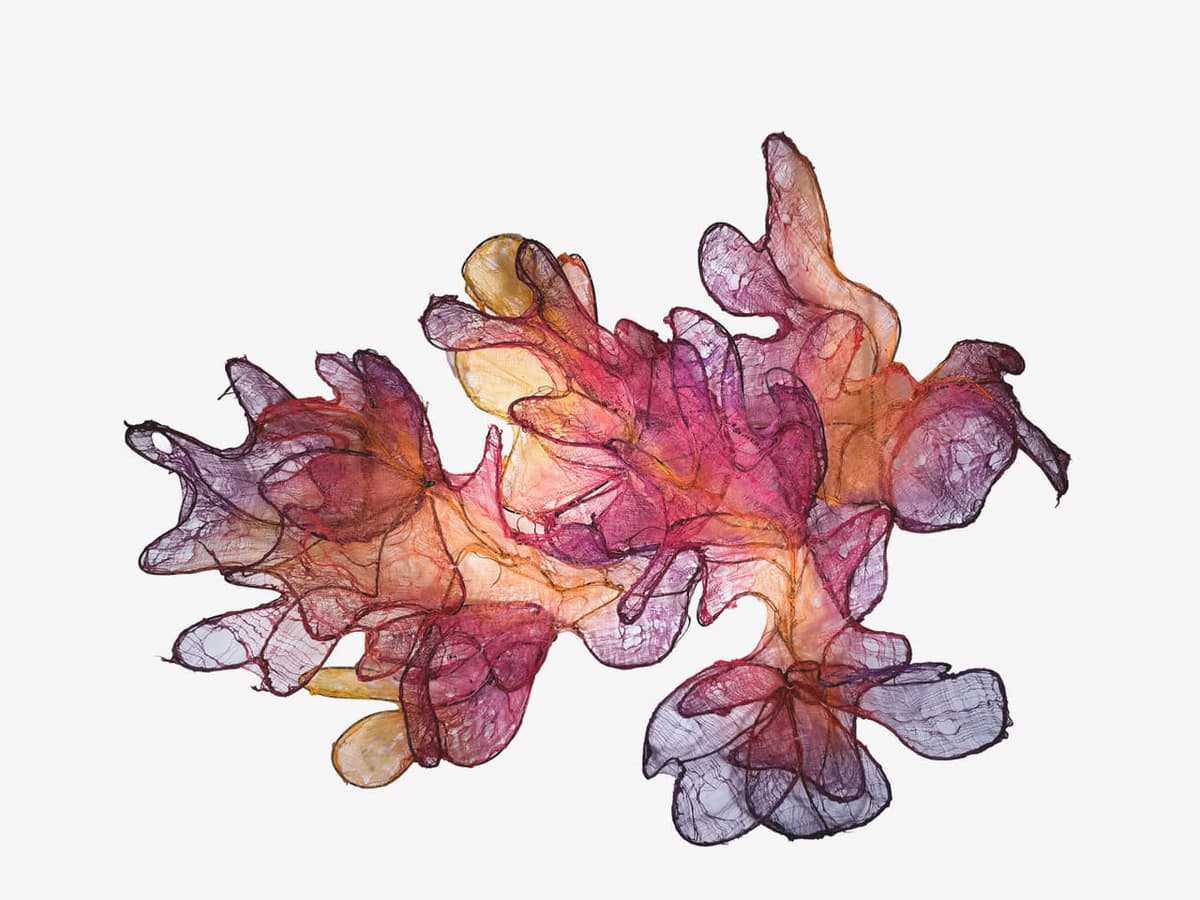
Where Dreams Take Us , 2026
Cheesecloth, wire, and dye
114,3 x 121,92 x 25,4 cmEnquiry
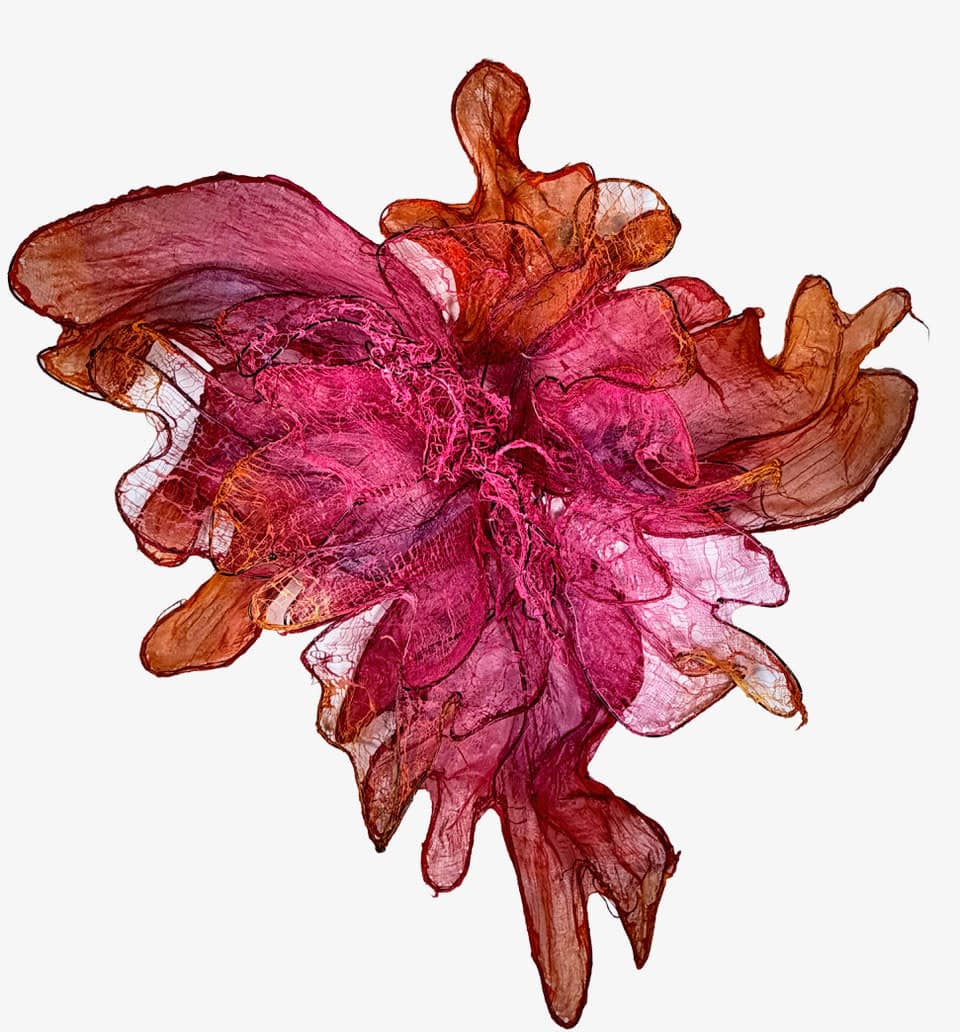
A Way Forward, 2026
Cheesecloth, wire, and dye
121,92 x 114,3 x 25,4 cmEnquiry
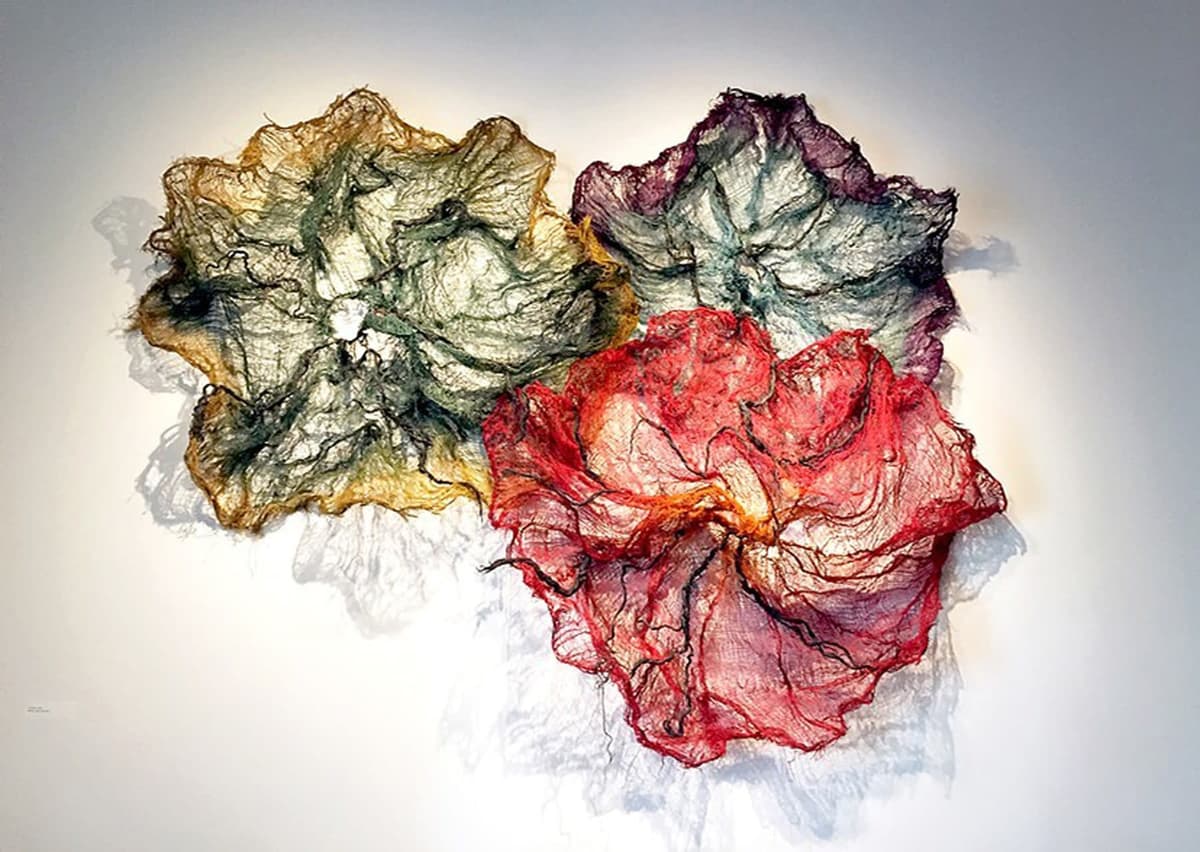
Chance, 2015
burlap, jute, dye and wire,
297,18 x 355,6 x 43,18 cm Enquiry
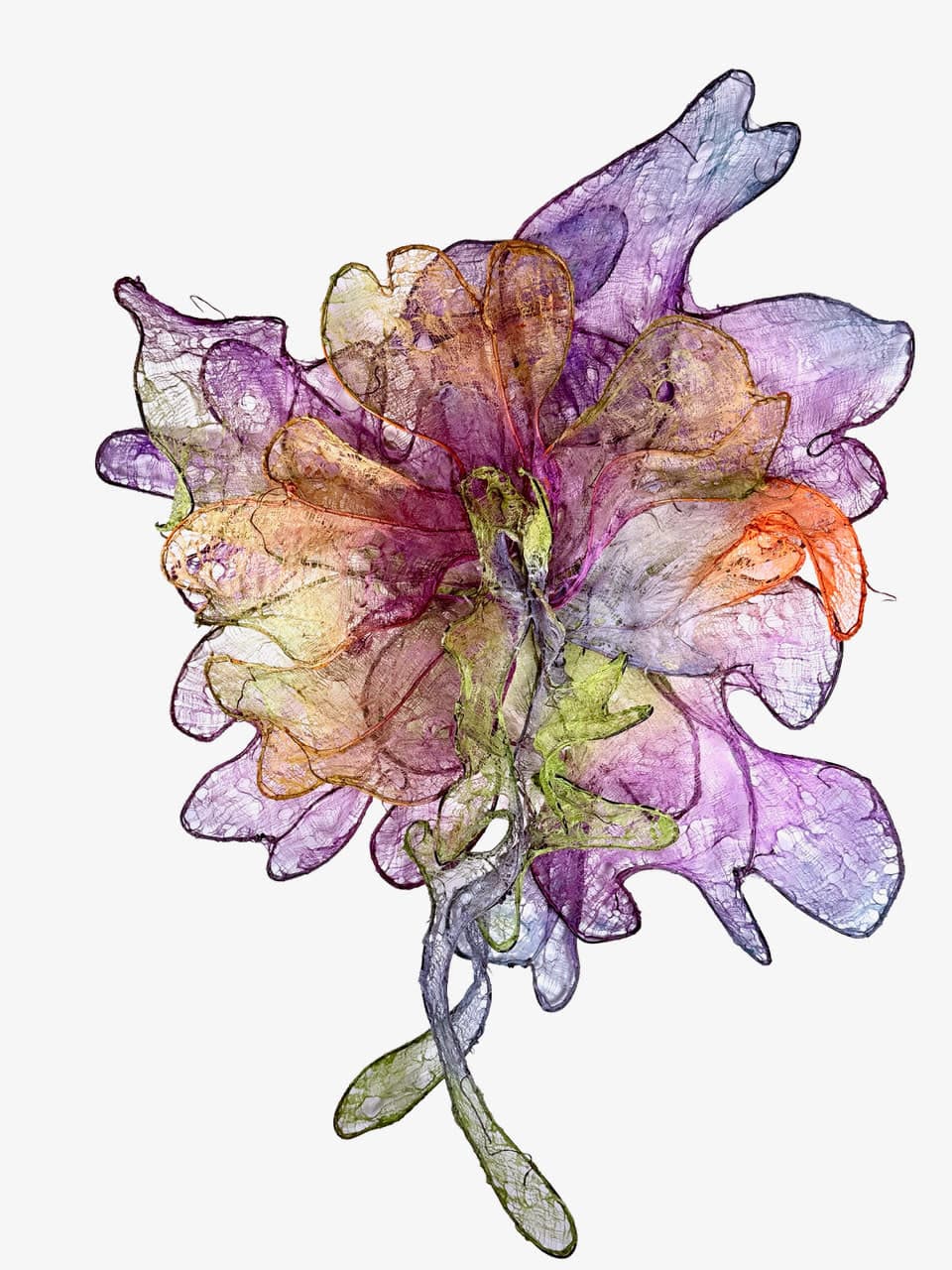
Kindred Spirit, 2026
Cheesecloth, wire, and dye
121,92 x 91,44 x 25,4 cmEnquiry
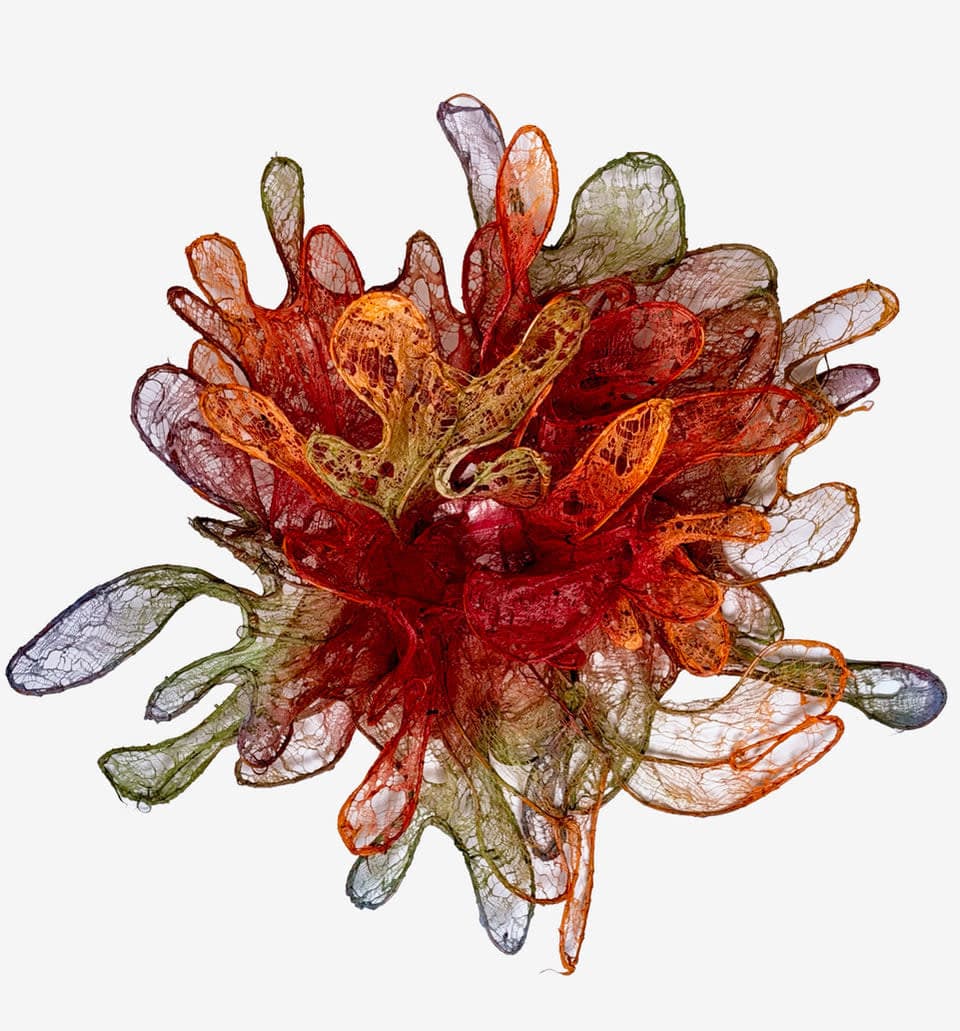
Light of Our Time II, 2026
Cheesecloth, wire, and dye
76,2 x 76,2 x 25,4 cmEnquiry
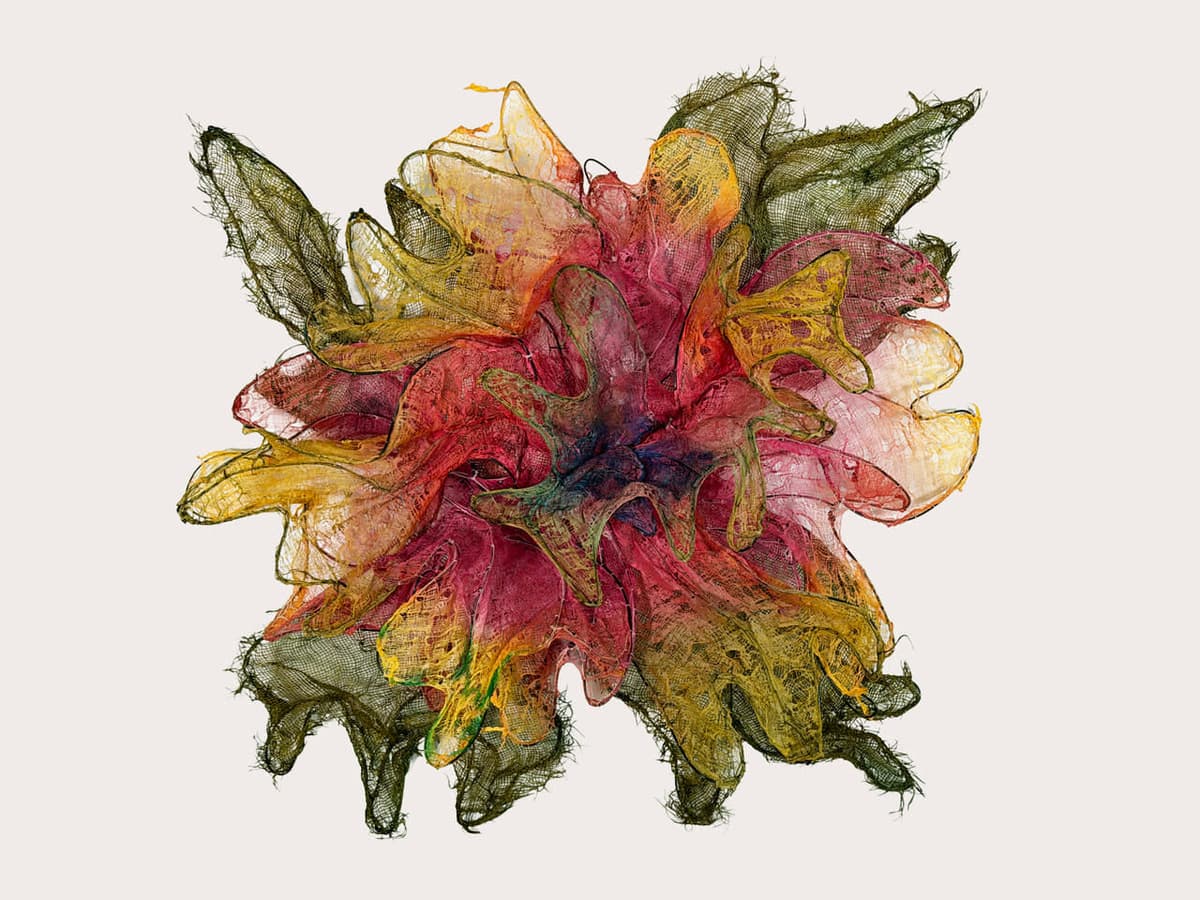
Memories From Afar, 2026
Cheesecloth, burlap, wire, and dye
114,3 x 127 x 25,4 cmEnquiry
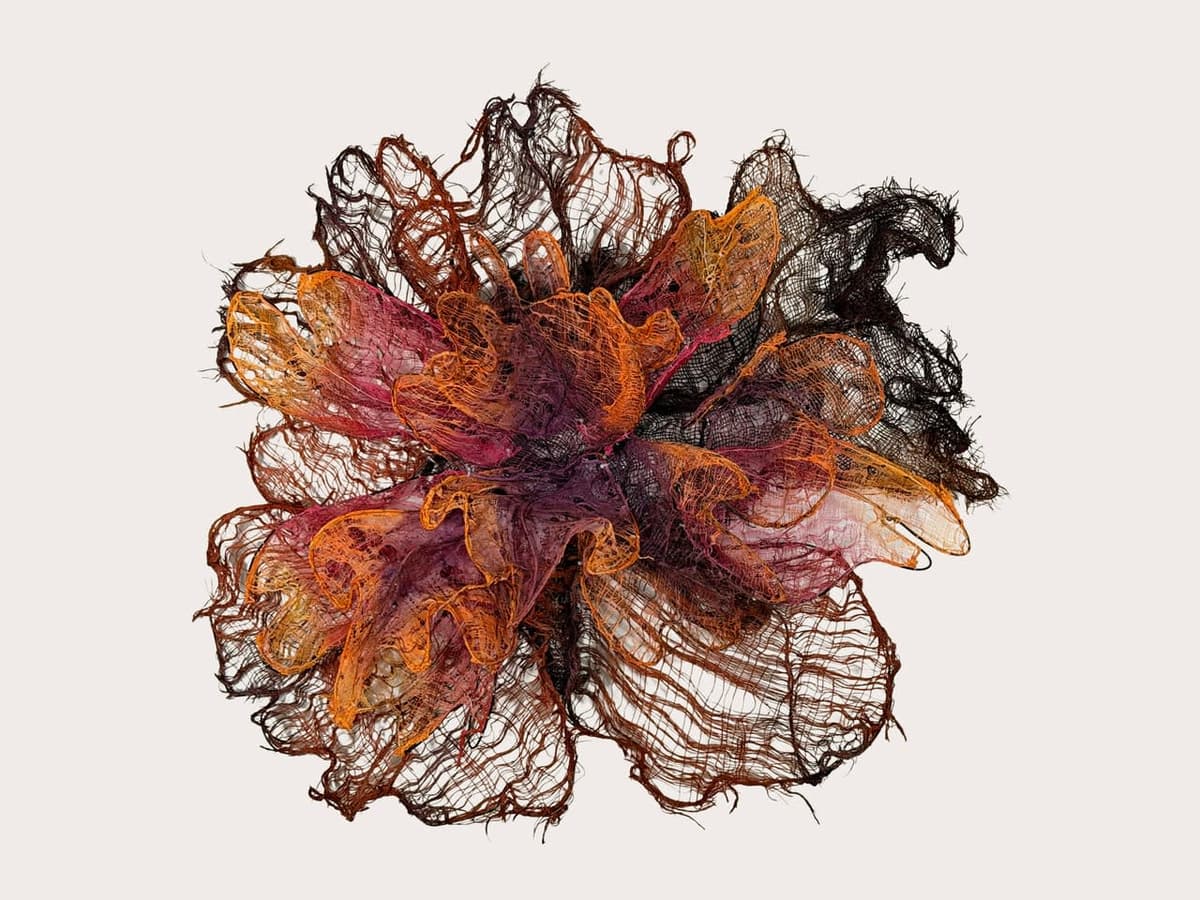
The Unravelling Truth, 2026
Cheesecloth, wire, and dye
121,92 x 121,92 x 25,4 cmEnquiry
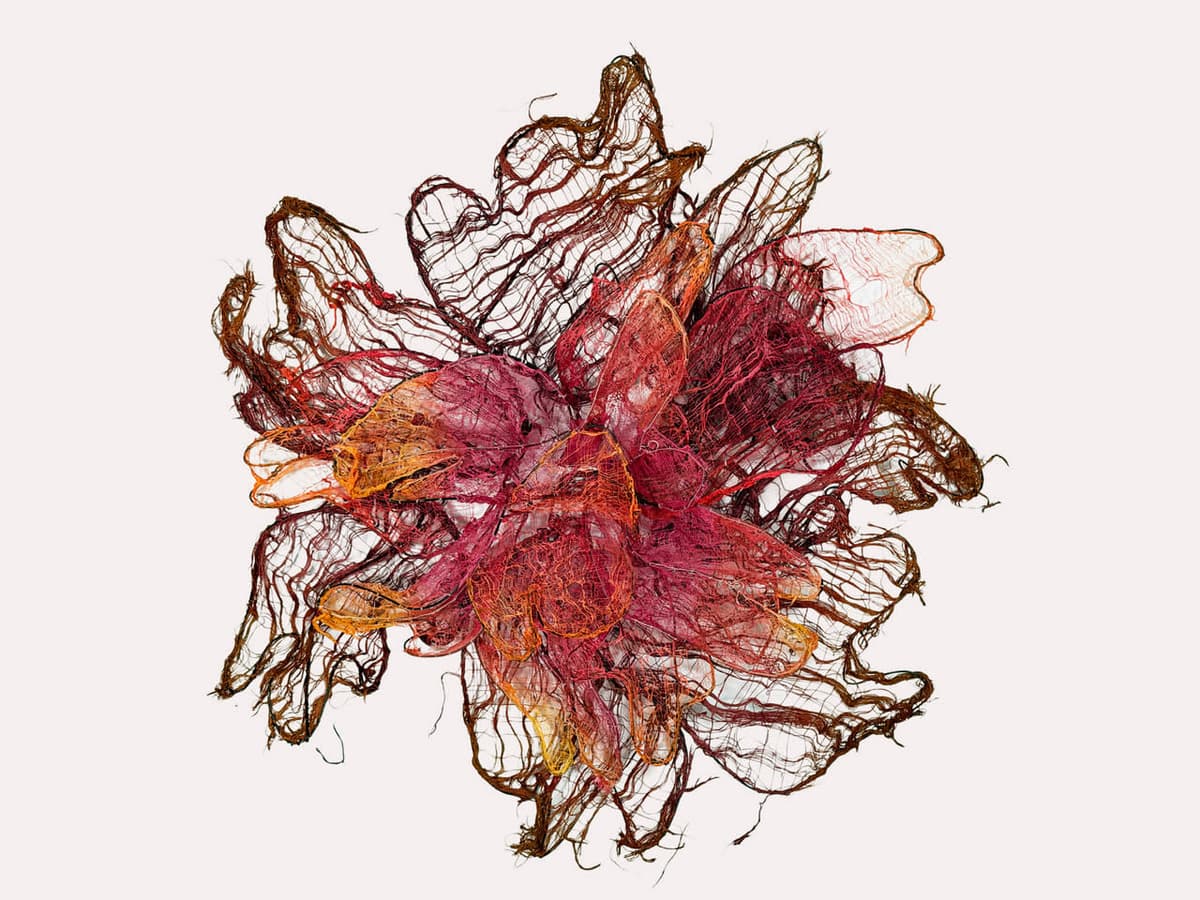
Threaded by Nature, 2026
Cheesecloth, wire, and dye
127 x 127 x 25,4 cmEnquiry
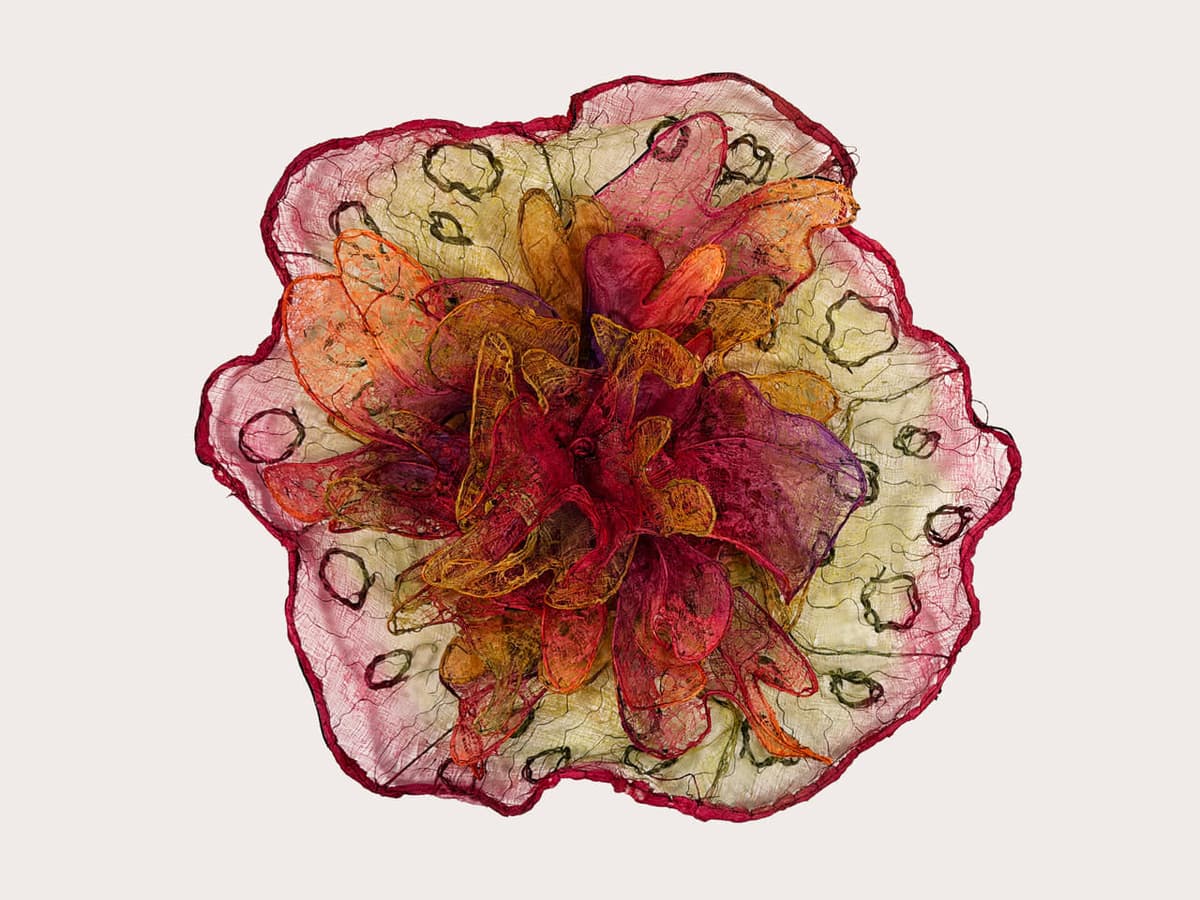
What Goes Around Comes Around, 2026
Cheesecloth, wire, and dye
101,6 x 101,6 x 25,4 cmEnquiry